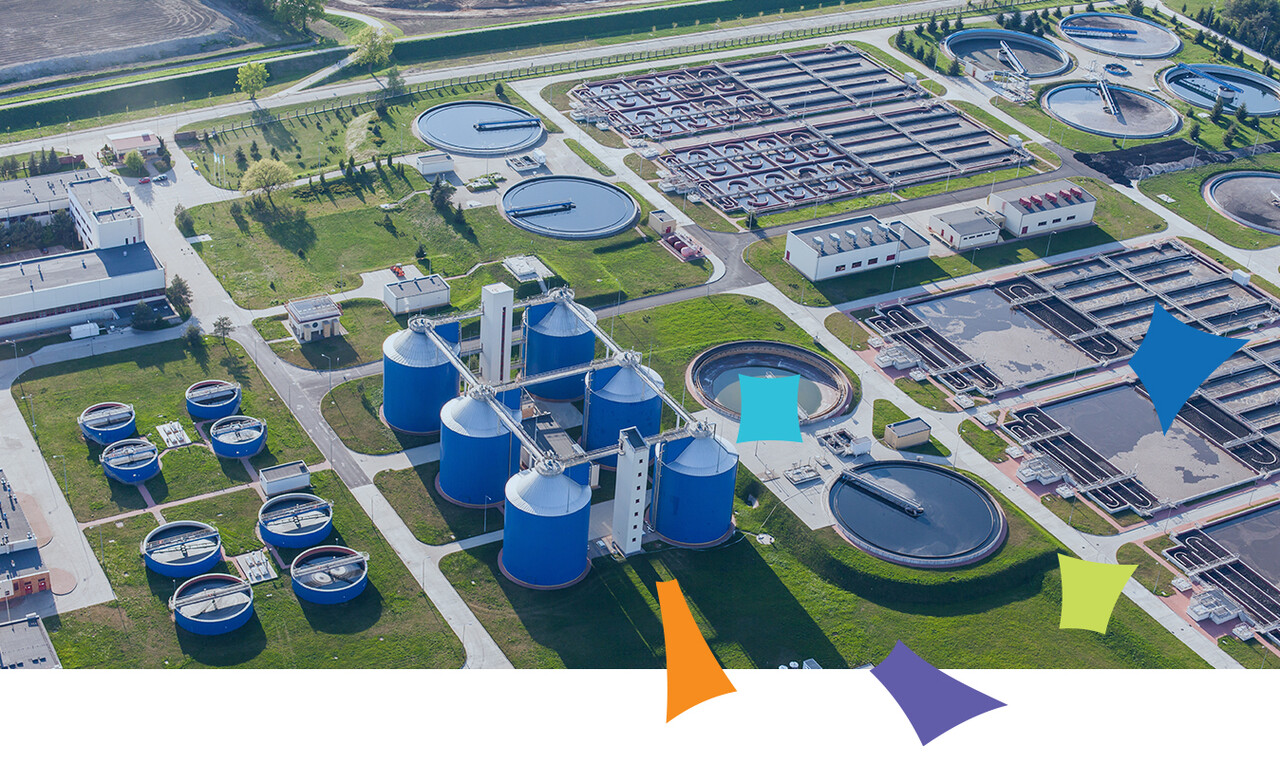Scroll down

What are independent water treatment plants – and why are they important?
Global sanitation systems are coming under increasing pressure. In the Middle East, independent water treatment plants point towards a new way of doing things.
Billions of people already live under extreme water stress, and the need for more sustainable water infrastructure has never been more pressing. Climate change is already undermining key sanitation systems, leaving many people at risk of waterborne illnesses and damaging vital ecosystems. We believe that independent water treatment plants are an important solution – and the evidence increasingly proves it too.
Although access to safe sanitation is a Millennium Development Goal (MDG), it remains one of the most off-track development goals globally. 3.6 billion people lack access to safely managed sanitation services, with 1.7 billion living without even basic services, leaving people around the world at risk.
And while the lack of safe sanitation facilities creates a major problem for global health, the release of contaminated water back to the environment also causes major damage to local environments. Already, over 80% of wastewater returns to the environment without any treatment, exposing habitats and people to harmful chemicals and materials.
Building resilient water treatment infrastructure is a critical issue for creating safe and sustainable infrastructure. At Alfanar Projects, we’re committed to developing infrastructure that can help build community resilience for generations to come.
The impact of climate change
In many ways, the impacts of climate change are most visible when it comes to water – more specifically, in the effects it is already having in regions across the globe. In areas already prone to hot and dry climates, the main means of procuring the soil moisture needed for farming and irrigation comes through rainwater. But, with global temperatures on the rise, collecting a reliable source of rainwater is becoming an ever-more difficult task.
The Middle East is the most water scarce part of the world, and temperatures in the region already rising twice as fast as others. Rainfall in countries such as Jordan is forecast to decrease 30% by the end of the century, fueling more frequent and more intense droughts. As a result, key water reserves such as Lake Hamlin are set to come under increasing pressure. Clearly, some innovative thinking is needed.
Powering new water solutions
Saudi Arabia is piloting new and innovative schemes that can help the kingdom meet its future water needs. For example, the innovative NEOM city construction will leverage major advances in technology to build sophisticated and sustainable water infrastructure for its residents. The design will include an inbuilt desalinization facility with zero harmful discharge and wastewater management methods that will reuse 100% of all wastewater with zero run-off to the environment.
But, while these innovative schemes hold great promise, challenges still remain. Desalinization plants often use fossil fuels to power water purification and still have high production costs. Independent water treatment plants offer an alternative solution. These plants provide a more affordable, scalable, and sustainable way to procure safe sanitation solutions for global populations – while also promoting the circular economy.
What are independent water treatment plants?
Independent water treatment plants process wastewater independently of public water mains. These plants process influent wastewater and purify it by circulating air to encourage the growth of natural bacteria that removes harmful chemicals and materials. The influent waste can then be released back into the environment, with significantly less harm being done to the environment.
Independent water treatment plants can also be a vital source of environmentally friendly green energy, particularly for communities and regions poorly connected by existing water treatment infrastructure. These independent water treatment plants produce safe and environmentally friendly water, which can be used locally for irrigation or released safely back into the environment, making them a vitally important source of water capture and reuse – a major ambition for GCC countries and the crux of Saudi Arabia’s Vision 2030 planning.
Independent water treatment plants also produce sludge, which can be burnt to produce biogas – a renewable form of green energy. And with such plants typically only using a small amount of electricity, if it all, to run, these plants can be easily powered by renewably sourced energy.
The construction of water treatment plants in Saudi Arabia is a major ambition for the kingdom. Already, strategically important water treatment projects, such as the Taif Independent Sewage Treatment Plant, are ensuring communities in extreme water stress regions continue to have safe sanitation, as well as creating a renewable and circular form of water to power the regional bioeconomy.
The Taif treatment plant can process 100,000 cubic meters of influent daily. And, thanks to a cutting-edge biomass cogeneration system which utilizes naturally generated sludge, the plant can generate up to 30% of its own power needs simply through its own by-product. The purified water is then released as effluent and used to irrigate a 21-hectare green space around the plant.
The future of circular water infrastructure
Climate change poses a major risk to the world’s water infrastructure. From clean drinking water that prevents food insecurity and supports natural habitats, to sanitation systems that prevent illnesses from spreading, the fight against climate change is a fight for safe water access.
And while innovative technological solutions continue to offer hope for the future, many of these solutions are expensive and can sometimes themselves be powered by fossil fuels. A truly scalable water architecture helps ensure people and planet continue to have access to clean and safe water and sanitation services while meeting affordability needs.
At Alfanar Projects, we leverage the benefits of a public-private partnership to build climate-resilient water infrastructure that ensures communities retain access to this most vital of resources.

